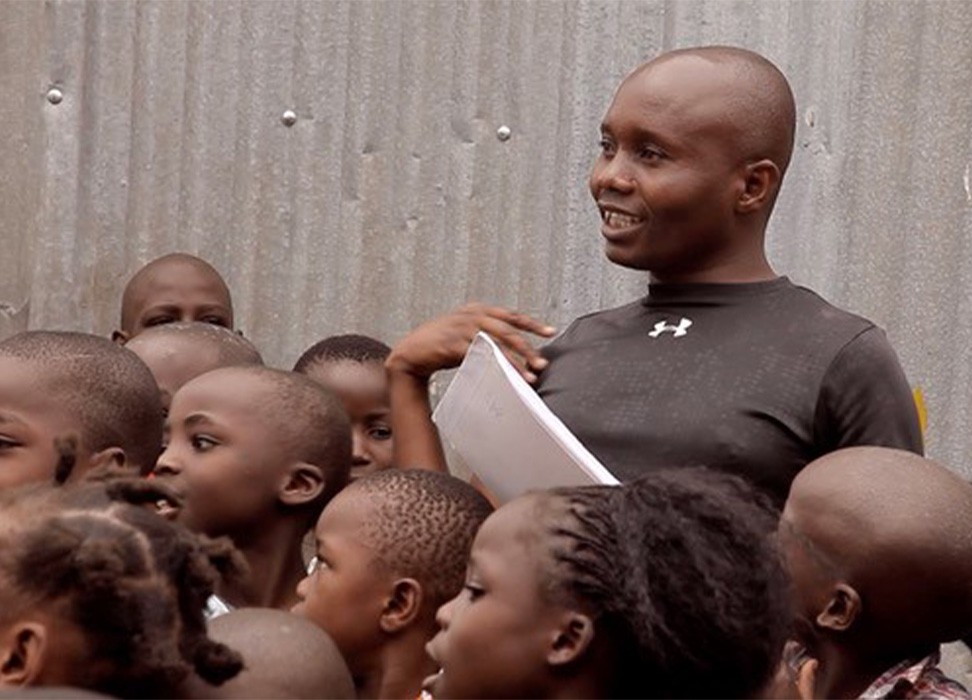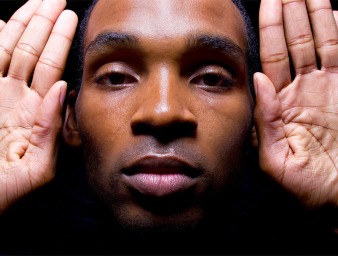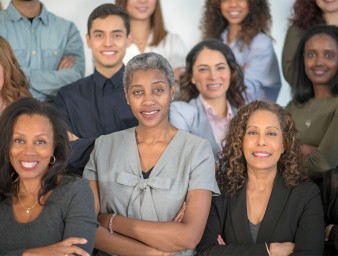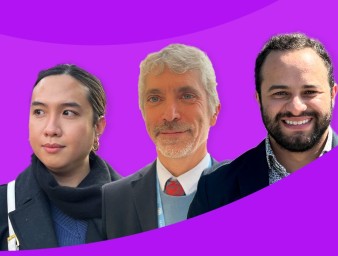“There is indeed a relationship between race and poverty”

Steve Arodi knows the power of determination, the power of dreams and the power of education.
“I come from a very poor family. The children in our neighbourhood didn’t go to school but still had to find a way to survive,” he said.
But Arodi, who lived in the Mathare slum in Nairobi, Kenya at the time, had a burning desire to change his life. His inspiration came from watching another boy who, although living in the slum, was going to school.
“I kept seeing him go to school and come back, and I kept feeling I need to join,” he recalled.
This need to join led Arodi to eventually follow that boy to school and enrol himself as a student, against his parent’s wishes. He lived on the streets of Mathare for eight years while attending school with the help and support from some teachers, after his parents refused to let him live at home. Arodi was eventually adopted by a Canadian priest at the age of 14, and left the slum to pursue his dreams of education.
Arodi’s life story was the subject of a film Little Big Steve (by Tiziana Caminada), and he was part of a discussion and later interviewed about the poverty and how often the roots of poverty are linked to race. The event, part of Ciné ONU, also featured a discussion with UN Special Rapporteur on extreme poverty and human rights Olivier De Schutter.
There is indeed a link between poverty and ethnic origin. Already in 2013, the UN Special Rapporteur on contemporary forms of racism stated that racial or ethnic minorities are disproportionately affected by poverty, with the lack of education, adequate housing and health care transmitting poverty from generation to generation.
Arodi agreed.
“If we want to change this mind-set we have to start with the small tender brains. If you tell them that they can make it in life and they believe they will, slowly we will change the cycle of poverty. We need to water the seed of greatness for it to grow,” he said.
Racism causes poverty because of the exclusion it leads to. But in addition, poverty itself may lead to further discrimination, what De Schutter calls "povertyism". The uncomfortable truth, says De Schutter, is that negative stereotypes about people in poverty are rife among the general population, and are embedded in the very institutions meant to support the poor: schools, social services, healthcare, housing.
“Even judges have been found to hand down harsher sentences based on anti-poor stereotypes,” De Schutter said.
A thematic study by the Expert Mechanism on the Right to Development issued in June 2022 linked racism to State violence, a lack of economic opportunities, poverty and other disparities that impinged on the right to development.
“To combat prejudice in all its forms, attention must be paid to the intersectionality between racism and other forms of prejudice and discrimination,” the study states.
The “Learn, Speak Up, Act!” Campaign launched on July 2022 by UN Human Rights aims at fostering concrete action to fight racism and other related types of discrimination. Challenging stereotypes and biases that encourage discrimination based on the colour of the skin or social origin is key to the full realisation of human rights.
Education: a tool to fight stereotypes, discrimination, and poverty
For Arodi, education is the best tool to fight stereotypes and to break the link between poverty and racism and get people out of the cycle.
“Education opens doors,” he said, “Education brings a sense of self-worth. Education is also an opportunity to find the solutions to the problems that exist in the world today. Education is a pathway to a better living, to a better world, a world free of all kinds of abuse and exploitation.”
Indeed, the thematic study on the right to development highlights that “Education […] facilitates the enjoyment of other rights, such as access to better employment, health care and political participation, and often contributes to breaking poverty cycles”.
De Schutter considers that governments should take class-based affirmative action, similar to other affirmative or positive actions taken based on race or gender and that, more often than not, stereotypes and fear of maltreatment discourage people from claiming their rights.
Arodi is doing his part to change the narrative on poverty and break the link between poverty and race. After receiving a degree in psychology from the Kenya Association of Professional Counsellors, he returned to the Mathare slum and started a school. Happy Star Academy takes in elementary age children, who longed for an education, just as he did all those years ago.
“The children have the right to education so I’ve had fights with the government, with cartels, with people who don’t understand the importance of education, but some of these people are now with me and some of their children are now in our school”.
Arodi strongly believes that people have a responsibility to enlighten young people and the community at large about their rights.
“We need to ask young people to be vigilant, hold the government accountable and make sure the government provides basic human rights for the people, and we need people to understand that discrimination not only hurts the person you discriminate against, but everybody in the community,” Arodi added.
Even when challenges are overwhelming, Arodi said he keeps hope alive, after all, his own hope led him to where he is now.
“[I intend to] provide hope to young people and children, to give them a reason to do something, to light a fire within them to do something.”



